CREATING AN INDUSTRY : Talking Tattooing Culture in Cairo Egypt with Tattoo Twon
The tattoo industry in the Middle East is growing rapidly and there are so many amazing artists that haven’t made it into the spotlight yet – so I sat down for a FaceTime interview with the incredible Tattoo Twon to discuss creating an industry, getting locked up, owning a shop and dreaming huge.
Memphis Mori:
So, Let’s get into this; Who are you?
Tattoo Twon:
Who am I? Yes. Well, my name is Anton Esmair, I’m 32. I go by Tattoo Twon (@twontattoo) and I was born in Jordan, and I grew up in Houston. I’m Palestinian Armenian and live in Egypt at the moment.
MM: So if you’re from Houston – how did you end up in Egypt?
TT: I got deported from Houston. Yeah, deported. I did some problems in my neighborhood. It’s kind of rough, you know what I mean? So there’s not any positive role models. I mean we all make bad decisions, but most people don’t get deported for theirs.
MM: So then what kind of childhood did you have?
TT: Growing up my neighborhood was one of the biggest hoods in Houston, so it’s full of gangs, drug activity, problems. So growing up in that you don’t have a way out, you’re not going to be anything. And 95% of my friends growing up are not anything. They’re still exactly where they’re at, and some are just never coming back.
So that’s just how it was in my neighborhood. So growing up in that was hard, what saved me was my high school. My school was a melting pot of half the suburbs and half the hood in the same school. So you got to have a melting pot of different sides to people, which led me to be able to know that there’s more to life than that.
MM: how long did you live in Houston?
TT: I was there for 19 years, and I’m 32 now.
MM: And do you have any plans to go anywhere aside from Egypt at the moment? Like are you planning on staying there or.
TT: I have plans of traveling the world. Yes. *laughs*
MM: So then how did you find tattooing?
TT: When I was 14, I saw kids who had a tattoo, so I was like, yo, that’s cool. I gotta have one of those. We were so young you couldn’t get it legally, so I ended up going to some Tattoo artist, who had this home set up going on the side for some extra cash. So he was tattooing youngsters. So I got my first one at 14 and after that I was a client, I was hooked, like I had to get more.
MM: So what was your first? Do you still have it?
TT: Yeah, I’ve got the cross on my arm so my mom wouldn’t say nothing. That was the first one, you know? And then after that I just like tattooed my hands.
MM: *laughs* That escalated quickly… So did you have a traditional apprenticeship?
TT: No, I didn’t. If we could fast forward after I got deported, I ended up in the middle East and that’s where I started to tattoo, because I was gonna end up homeless. Like, I didn’t have a job. I tried to get a job and they were like slaving me out like 19 hours a day and it didn’t even cover my rent. So I was like, yo, like I don’t have anybody out here. I don’t know what to do. So, you know, when I was locked up, we learned how to make machines and stuff. I had got my whole chest and my stomach done -So I remember this guy in prison, he showed me how to make the machines and create my own needles and do all that sh*t. So like I did that. I started tattooing like that.
MM: Can I ask what you got locked up for and how long you were in prison for?
TT: I was gone for about two and a half years in the States and when I got to Jordan, I did another two and a half years there because I crashed and burned pretty much. Tattooing didn’t really make me enough money to survive, so I started doing other sh*t. Then after that I just got tired. I was like “yo, I’m going to stop. I’m going to just focus on tattooing.” I even got a regular job on the side and some restaurant like making sandwiches and sh*t. Like it was a struggle, but like I stayed with it. The very first professional tattoo artist in the middle East his name was Huzz (@huzzink) – he had the biggest tattoo shop in Jordan. Like he used to be the top guy. He was the first one to do it properly. So I always used to go by shop and buy anything I could from him, like anything I could get my hands on – some extra ink or needles or you know, like he would have like the stencils and stuff that he had printed out and stuff. I used to buy those old flash books and sh*t way back in days. Huzz was the guy- he was the one that like making all the real money, doing all the real sh*t, you know, traveling, was always going out and so like, you know, kinda everybody wanted to be able to be like him. He called me and I guess he had seen my work and he was like, “y’all want you to work with me?” When that happened I quit my job. I just went with him and that was in 2012 and I worked with him till late 2016.
MM: When you got into a shop, did you notice like a huge difference in like how quickly you learned to tattoo and like quickly you improved?
TT: It took me within four months of being there to get to a whole nother level. I became pro.
MM: Yeah, that usually tends to be how it goes. Working by yourself is definitely far more challenging. I found with tattooing if you don’t have someone to bounce ideas off or you don’t have anyone to like kind of show you the right direction, it’s a lot harder to learn.
TT: Correct, That’s very correct.
MM: Do you find because you are self taught, the industry looks down on you?
TT: Well, I mean honestly like as far as the industry goes, there was no industry in the middle East, the whole middle East was off. So like every country might’ve had its one or two tattoo artists. They’re like, they have the whole scene. And so we kind of started to see them pop up in time just how Huzz popped up. So no, there wasn’t anyone to look down on you
MM: And tattooing in Egypt is legal or not legal?
TT: It’s not legal or illegal. There’s no laws that say we can or can’t
MM: Okay. Canada is actually the same. I mean I’m not really complaining, but it’s strange. So Have you traveled much as a tattoo artist and where have you traveled to?
TT: Well, I started out in Jordan and then I came to Egypt. I came to Egypt because of Huzz, we opened up in Jordan and then I decided I wanted to go to Egypt and he wanted to go to Dubai. So we opened up Dubai, Egypt, and Jordan at the same time. So that was like the first actual attempt to like spread out like that. So when we did that, it was just like, Whoa, what are we going? Oh, it’s just like, like we’re crawling into different cities in the middle East and different countries. A plane blew up while I was in Sharm al Sheikh, and I had to close down the shop so I only had two options: either go to Cairo or go back to Jordan. And I was like, “I’m not going back to Jordan, dude, I’m going to go to the next part”. I get to Cairo and within seven months, eight months, I don’t even how that happened I went viral. I had went to rehab, I put drugs and everything down and I got clean and three months after leaving the rehab, like I ended up posting an old tattoo I did and it went viral- like 16,000 likes
MM: What Tattoo was that?
TT: It’s funny because that was a tattoo I did back in Jordan in 2013. It was a really old tattoo and I posted back in Jordan it did nothing. I posted it again in Cairo and it goes viral and it was only God can judge me in Arabic script.
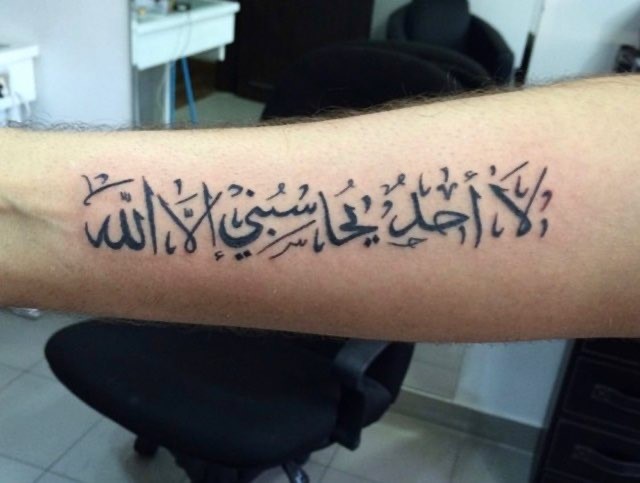
MM: Is there a stigma tattooing in Egypt? In America and Canada, for a very long time having visible tattoos was a problem. People judged you, people made you feel like you were a criminal or like a bad person. Is that a thing there too?
TT: Yeah. It exists everywhere. All around the world though I would say. The tattoo was always linked back to the prisoners, the army, and all that. So yeah, I get that that’s where that comes from from, but that’s probably what the older generation, they’re the ones that still hold that. As far as the new generation goes, they’re definitely not looking at it like that.
MM: No, no. Even here, it’s changed so much in such a short time, this’ll be 13 years in the industry for me and I’ve seen such a huge change in that 13 years. Like nowadays, like nobody bats an eye at the fact that I have face tattoos. When I first got my hands, everybody was like, “Oh, you can’t do that” or “you’re crazy, you’re never going to have a good job” And it’s definitely awesome to see how much it’s changed in such a short time.
TT: Right, right. Yeah, it’s dope.
MM: So how have you seen the industry change since you got into tattooing?
TT: Ive watched everything change. Like even the tattoos themselves changed. Like, I definitely know in Houston, I was hanging out with some of the dopest tattooers in my city, like Johnny Jackson and all of them and, and Texas body art. And I, and I seen how they do and it was, it was a whole different level of tattooing. Even then, and like 10 years later, 12 years later, like now there’s hyper realism things and like, “Oh, what’s going on? I don’t understand” you know, but it’s past my level. I wouldn’t know how to do that, you know, but I have seen everything change. Even the machines, everything is beautiful now. You know, they even made those wireless machines, like I don’t even need a wire anymore. Like that’s stuff I thought of like 10 years back and I was wishing for it and now it’s real. So it’s like so f*cking cool. It’s so cool to see technology coming in and like all these new machines and all these like up and comer tattooers and styles!
MM: What’s your favorite style to tattoo?
TT: I love Japanese art. I love it. I just love the way it’s put together. I love the animals. I love all that. Or like any kind of art to anything that has to do with animation. I love that – that’s my style. But then again, you know, I can tattoo almost anything except portraits.
MM: Do you think you would try portraits or do you think that’s just not something you’re comfortable with?
TT: I tried. I did a Tupac, it came out all right. But like it’s not a small bar. So like, you know, I have a certain standard for myself. I’m not saying I’m the best or anything like that, but like I try to do my best. So I get discouraged that I haven’t hit it yet, but I need guidance. Like it’s gotta be somebody better than me, like to show me the steps or I ain’t never gonna get it.
MM: Yeah, I hear that. That makes sense. Do you find that your hand, neck and face tattoos get you treated differently?
TT: They can be looked at differently? I don’t think it, I don’t think they could treat me differently. Like, you know, I’m a very, very charismatic person. Like I’m going to tell you straight up, so you’re going to have to answer.
MM: I was going to say, you’re definitely very friendly. I’ve always found that like if you’re heavily tattooed- you have to be very outgoing and confident. Then people will look passed the tattoos very quickly. But if you can’t talk your way through it then it’s definitely a problem.
TT: I can pretty much talk my way through anything. That’s right.
MM: so overall, how do you feel about tattooing?
TT: I love tattooing. Like that’s what I do and you know, I wake up, I’m thinking tattoos and before I fall asleep, I’m thinking tattoos. So yeah, I’m going to be tattooing probably my whole life. I know that for a fact what I like to get into other things. I’m a business person, so I’m really good at like making things flip. I’m good at organizing things. I’m good at making things actually happen for me. And so that’s what I do.
MM: Well, what kind of projects are you working on at the moment or do you want to start?
TT: Well, we’re working with Sullen Clothing at the moment, so we’re pushing that project. I have a whole middle East to cover, so yeah, I’ve got a lot on my hands. It’s gonna be big if it works out.
MM: And how has Sullen Clothing been received in Egypt?
TT: It’s being received in a steady pace. It is slow because still no one understands what’s going on. But at the same time, we know making any progress is better than none. So, you know, I talked to Jeremy (The Co-Owner of Sullen) about it. He gave me the game plan and said take it slow and, you know, just take it easy. And that’s what I’ve been doing. I think we’re gonna work it out this year.
MM: And how did you get involved with Sullen Clothing?
TT: That was fate. That was definitely fate. I was one of those people that was like always like, how come the (international) industry hasn’t given us our credits? How come they don’t pay attention to the Middle East? Why aren’t any of the artists here in any magazines, they’re not nothing- but it seemed like nobody cares about us. So just like, it always bothered me and you know, one day, Jeremy (@unclejeremy) followed me on Instagram out of nowhere. I was just like, yo, what’s that? So I looked and I found out, I was like, “Oh sh*t, that’s cool.” You know? And then nothing happened for two years after that, then Sullen posted on Instagram “tag your favorite tattoo artists and we’ll give them a follow.” So at that time I already had like over a hundred thousand followers on Instagram from tattooing and, and all that.
So I told everybody on my Instagram, “yo, y’all f*cking tag me”. And then sh*t!. I was the most tagged person and ALL you saw was my name, sh*t was Crazy! *laughs* And so they followed me. Once that happened, I called my boy up. I was like, “get here now – I’ll f*cking tattoo the biggest Sullen logo on the side of you ribs.” Within three hours of that call, I posted the video of me doing the tattoo- and they were like, “Oh sh*t”. So they had tagged Sullen Egypt. I spoke it, and that made a real, That was pretty f*cking awesome. Yeah. Yeah. If you open the doors for me – I’m tearing sh*t up, You know.
MM: I get that! you don’t waste opportunities – if something presents itself to you and you can do something with it: You’re stupid if you don’t. Totally.
TT: Yeah, definitely. That’s exactly what it was.
MM: How do you find supplies, like getting supplies into the country? Do you find it difficult to get the best brands or is there a supply company there?
TT: Let me explain this to you. This is the biggest problem that we have. To actually get supplies in here, you have to have a friend fly them in from the States, Australia or any country. And at the same time they can only bring a little bit, they can’t bring too much so they’ll get past customs. That’s the only way to get the stuff that you really want. The other stuff that’s available is all Chinese imported. It’s garbage, I don’t want it. You know what I’m saying? I’m not going to use it.
MM: So why is it so hard to get the companies that you want in?
TT: Because there’s no, there’s no law that says yes or no. So therefore when you order it, customs stops it, because they can’t tax it. So they’re like “what is that” and can’t tax it. There’s no rules or laws that say “this is cool” so like inks, machines, stencils and needles; they don’t know what to put it under so they don’t let it in. They block it right away.
MM: So does that affect the price of how you can charge for tattoos?
TT: Yeah, it does. I have to charge a lot more
MM: Do you think that’s ever going to change? Like do you think someone’s eventually gonna open a supply company there?
TT: Well, I mean they did in it Lebanon – they got a whole convention running in Lebanon for the past four years. I’m proud of them. They get it, you know, they got actual supply shops all over. They’re selling actual supplies, the real stuff. So like they did it, but Lebanon is a different situation than all the other countries, you know. So they got it like that. We don’t, you know, we still have to do it the old fashioned way.
MM: How did Lebanon manage to do that? Is there no way that someone could change the laws or try and get some regulations or,
TT: Honestly I don’t know how to answer this question. It has to do with the way the country’s laws are set up and I’m guessing Lebanon has a different set of rules.
MM: Do you find like there’s a lot of clients who get tattooed in your style? Do you find like finding clients where you are is pretty easy?
TT: Foreign clients, well, let me break this down. Me working with Huzz, I worked him for four years and has showed me the business side of tattooing – he showed me how to brand myself, and showed me a lot of skills. And I, at the time I didn’t even know I was learning this stuff. I just has learned it being there so long. So I used all that and knowing all that, it put me to be the top tattoo shop in the city. So if you’re searching tattoos in Cairo, you’re going to find Rider’s Studios -first thing, you know, so I get all the right clients and now I make sure they leave good reviews. 99% of them have been great reviews and I haven’t had a problem.
MM: Around us in Canada specifically, we’ve discovered that lately there’s more tattoo artists popping up every day. Are you finding that’s starting to happen where you are or do you find that there’s still like a shortage of tattoo artists?
TT: Well, I mean there’s a whole bunch of them now. They are growing like a virus right now. They’re all getting in at the wrong reasons though. Everybody’s seen us. They seen us make the names and make a little bit of fame or whatever and they see you making money. So they’re all getting into it for that reason. I had that complex when I was a kid. Like I’m not a kid anymore. You know, Tattooing, it has rules to it. You’ve got to follow them. It’s not a joke. You know, I was the first one to introduce sterilization and sterilization videos and all that in Arabic to the clients. I kinda like set the bar even to a point where you kind of knew the real and the fake and you knew the good and the bad. So we pushed it out like that. But all these new tattooers, they’re not following the rules. They don’t care. So that kind of worries me a bit cause they’re going to get somebody real sick.
MM: Yeah. Unfortunately the way it goes, it’s going to happen it is the same thing that happens here but it’s hard to survive long term. It’s easy to open a shop. It’s easy to start, but it’s not easy to survive.
TT: I’m definitely one of the older ones in the region. Huzz is in Dubai’s making over $50,000 a month tattooing there. So he’s good. Well his goal was, his goal was to be a millionaire. So he had told me that a long time ago, I was like, “man, I ain’t gonna do that sh*t. How you f*cking going to be a millionaire off the sh*t?” Like it didn’t make sense. But his mindset was different than mine. I didn’t understand. So he figured it out. I’m over here. I chose more of the name. I wanted the name. So I made the name here. My name is very strong in the Middle East. Now it’s growing over the world. My tattoos, they’re all over the world. Literally everywhere. Even in your city, they’re everywhere. That’s what’s cool about being in Egypt is it gets around. So everybody’s coming in as a tourist and- boom, boom, boom, and then they fly out. So it’s like, my name’s going places is like, that’s really cool.
MM: Yeah. That’s one of the best things about tattoos- they can get around *laughs*
TT: Definitely. I mean they’re all coming out here to see the pyramids and stuff and chill and have a good time and they come get that one Memorial tattoo or they come get whatever. So I keep contact with all these people, you know, I don’t leave my clients like that. I keep them on tabs cause I never know where I’m going to go.
MM: Sure. That’s very smart. And how do you like owning a shop?
TT: Owning a shop is a beautiful thing and at the same time it’s a very huge responsibility. But you know, if you gotta- you gotta do it yourself to make sure it’s done right. I believe in that. I follow certain rules in my work so I make sure that everything’s up to the standards that I wanted. So I take control everything. That’s how it gotta be.
MM: How many artists do you have at your shop?
TT: Well see, like all my artists are, all the people I’ve worked with are now shop owners. They quickly soaked up the little information that I gave out to them and everyone went their way and did their thing. I’ve got one guy with me right now, He’s a long project, but you know I still need building: I need to run into some bad asses and have to have a good conversation because there’s a lot of information now I need to have and know as well.
MM: And I guess the last question I would have for you then is, what’s the hardest part about owning a shop?
TT: The hardest part about running a shop in Egypt or in the middle East period is a, the responsibilities of it is to make sure everything runs correctly. You know, you don’t have any problems, you don’t have any errors. There’s no cross contamination going on. There’s no, you know, all the clients are satisfied. Like, you know, I try my hardest like not to get any bad reviews, any kind of bad situations.
MM: Oh, I hate that. It’s bad reviews still drive me crazy. So
TT: Yeah. But I, I’ve done a really good job at not getting any bad reviews, I haven’t really pissed anyone off so far. So yeah, definitely hard work. It’s hard work. It’s not easy. But I wouldn’t change it for anything.
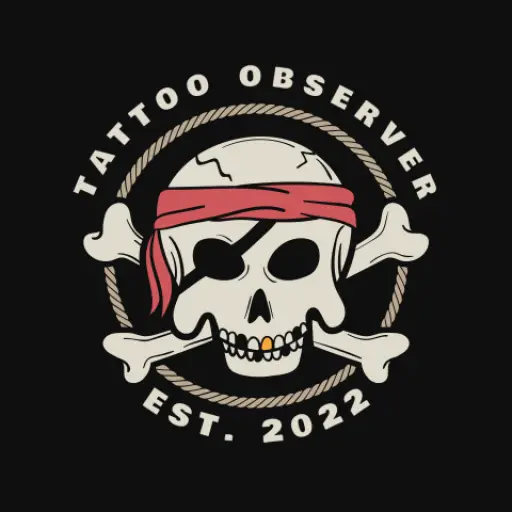


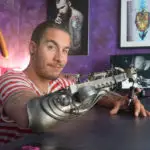




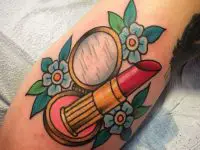


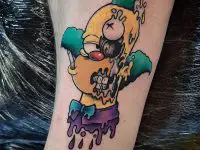
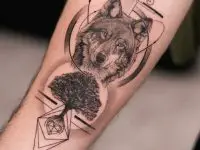
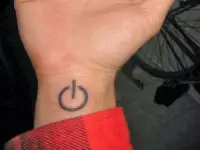


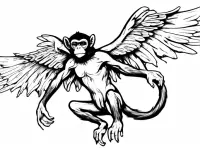
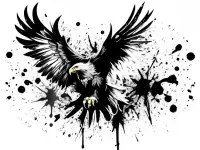




0 Comments